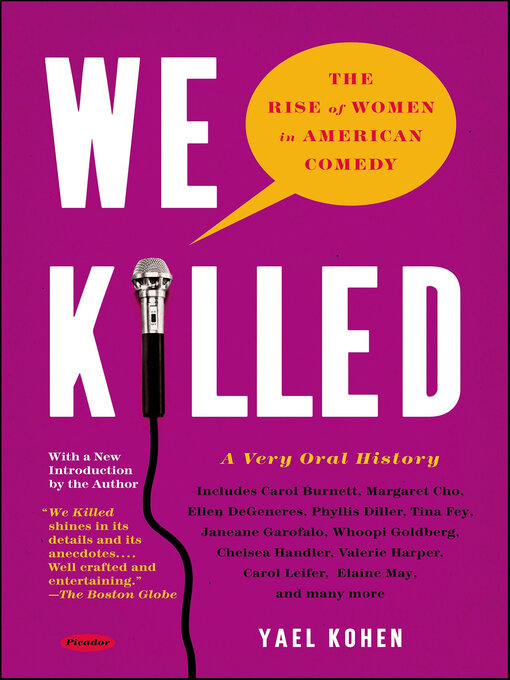“Comics of all levels of celebrity . . . carry the story . . . [and] there's a bracing dose of shoptalk that puts you right inside their wheelhouse. . . . Satisfying.” —The New York Times Book Review
No matter how many times female comedians buck the conventional wisdom, people continue to ask: "Are women funny?" The question has been nagging at women off and on (mostly on) for the past sixty years. It's incendiary, much discussed, and, as proven in Yael Kohen's fascinating oral history, totally wrongheaded.
In We Killed, Kohen pieces together the revolution in American comedy, gathering the country's most prominent comediennes and the writers, producers, nightclub owners, and colleagues who revolved around them. She starts in the 1950s, when comic success meant ridiculing and desexualizing yourself; when Joan Rivers and Phyllis Diller emerged as America's favorite frustrated ladies. Kohen brings us into the sixties and seventies, when the appearance of smart, edgy comedians (Elaine May, Lily Tomlin) and the women's movement brought a new wave of radicals: the women of SNL, tough-ass stand-ups, and a more independent breed on TV (Mary Tyler Moore and her sisters).
There were battles to fight before we could arrive in a world in which women like Chelsea Handler, Sarah Silverman, and Tina Fey can be smart, attractive, sexually confident—and, most of all, flat-out funny.
As the more than 150 people interviewed for this riveting oral history make clear, women have always been funny. A chorus of creative voices and hilarious storytelling, We Killed is essential cultural and social history.
“Well crafted and entertaining.” —The Boston Globe
“You'll learn as much as you laugh.” —Cameron Diaz
“Part show business chronicle and part . . . confessional . . . further proof that women...will have the last laugh.” —Elle




